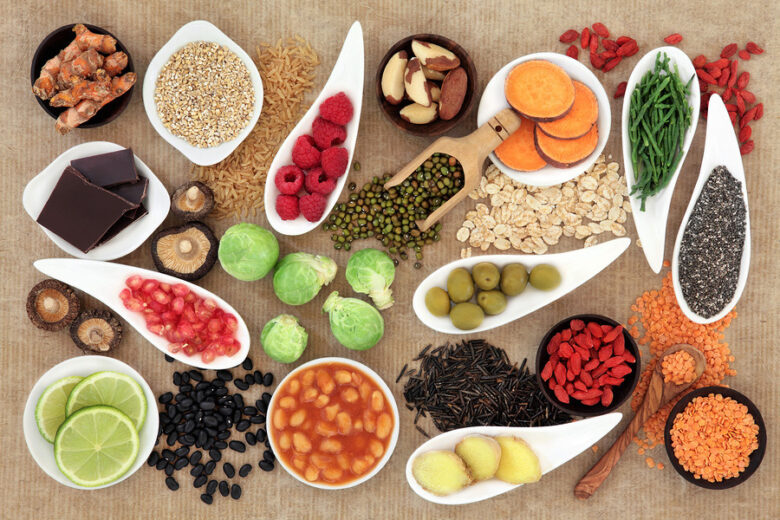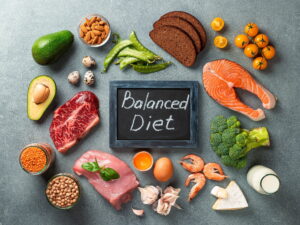Nutrition is essential to maintaining good health, energy, and well-being. The vast amount of available information can make eating healthy seem overwhelming to beginners. The basics of nutrition may appear complex, but they are actually quite simple. Eating smart is about making informed choices so that we can provide our bodies with the proper balance of nutrients. Dieting and restricting food is not nutrition. It is fueling your body in a manner that promotes long-term health, helps prevent chronic disease, and supports long-term wellness.
Build a Balanced Plate
Balanced meals are a wonderful way to start eating healthier. A balanced plate includes many different food groups, including fruits, vegetables, whole grains, lean proteins, and healthy fats. Each group has unique benefits to the overall health. Whole grains and vegetables provide energy, fiber, and essential minerals and vitamins. Healthy fats and proteins are essential for hormone production and brain function. Beginners can meet their nutritional needs by including these ingredients in their meal plans.
Portion Control: What is it?
Portion control is important for a healthy diet, even when you are eating nutritious foods. Beginners often overeat because they don’t know how much food their bodies need. Understanding what a reasonable serving size looks like will help you avoid excess calories and maintain a healthy body weight. Portion control can be easier to manage with simple practices such as using smaller plates, paying attention to hunger signals, and avoiding distractions when eating. Eating mindfully allows people to eat and enjoy their food without overeating.
The Importance of Hydration in Nutrition
When discussing nutrition, water is often forgotten. But it is as important as any food. Proper hydration is important for digestion, energy, and body function. Drinking enough water can help improve concentration, reduce fatigue, and regulate appetite. Often, the body misinterprets thirst as hunger and leads to excessive snacking. It is easy to eat smarter by choosing water over sugary drinks. Staying hydrated is as simple as carrying a water bottle and drinking water throughout the day.
Reduce Sugary and Processed Foods
Cutting back on sugary and processed foods is one of the best nutrition tips beginners can follow. It is impossible to avoid all processed foods, but being aware of your consumption can make a huge difference. Highly processed foods contain excessive sugar, unhealthy fats, and artificial additives with little nutritional value. These foods can increase the risk for obesity, diabetes, and heart disease over time. Beginners can make better choices by choosing fruits over sugary snacks, whole grains over refined grains, and cooking meals at home rather than relying on takeout food. This area is where small changes can have a significant impact on your health.
Include Healthy Fats in Your Diet
Fats are not bad for you, contrary to popular belief. Healthy fats are important for brain health, hormone control, and nutrient assimilation. Beginners need to know the difference between unhealthy trans or saturated fats and healthy unsaturated fats. Avocados, nuts and seeds, olive oil, and other healthy fats are found in foods like avocados. Limiting fried food, packaged snacks, and fatty meats, on the other hand, is essential for long-term wellness. A small amount of healthy fat in meals can not only enhance flavor but also help control hunger.
Plan and Prepare Meals in Advance
Healthy eating habits are difficult to maintain for newbies. Meal planning and preparation can simplify this process. It is less likely that you will eat unhealthy fast food or indulge in impulsive eating if you plan your meals ahead of time. By preparing ingredients in advance, cooking large batches, and having healthy snacks available, you can save time while making smarter decisions. Planned meals ensure a balanced diet and make it easier to shop for budget-friendly groceries.
Listening to Your Body
Listening to your body’s signals is another way to eat smarter. Most people eat because of boredom, stress, or habit rather than hunger. Beginners need to learn how to distinguish between emotional and physical cravings. Simple but effective practices include slowing down and enjoying every bite while eating. Paying attention to the way certain foods make you feel can help individuals make better decisions and build a positive relationship with their food.
Conclusion
It is not necessary to complicate the basics of nutrition for beginners. Eating smarter means making gradual and sustainable changes to support your long-term health. Anyone can improve their nutrition by focusing on balanced meals, portion control, and hydration. By incorporating proteins, healthy fats, and whole foods while listening to your body’s signals, you can achieve a healthier life without any unnecessary restrictions. Beginners can gain confidence by following these simple steps and reap the rewards of feeding their bodies correctly.
FAQs
1. What is the best nutrition tip for beginners?
Focus on a healthy balance of foods, such as whole grains, fruits, vegetables, and proteins.
2. How many ounces of water should a novice drink per day?
Water consumption varies depending on the individual, their activity, climate, and health.
3. Would it be possible to still enjoy my favorite snacks while eating smarter?
Moderation is the key. It’s okay to enjoy your favorite snacks on occasion, as long as you eat a diet that is nutrient dense.
4. Do you need to take supplements for your nutrition?
A balanced diet is sufficient for most beginners to get the essential nutrients they need. In cases of deficiency or certain health conditions, a healthcare provider may recommend supplements.
5. How soon can you expect to see the results of eating smarter?
While positive changes such as improved energy or digestion are often noticeable within a few short weeks, long-term health benefits like reduced disease risks develop over the course of months and years with consistent healthy eating.




